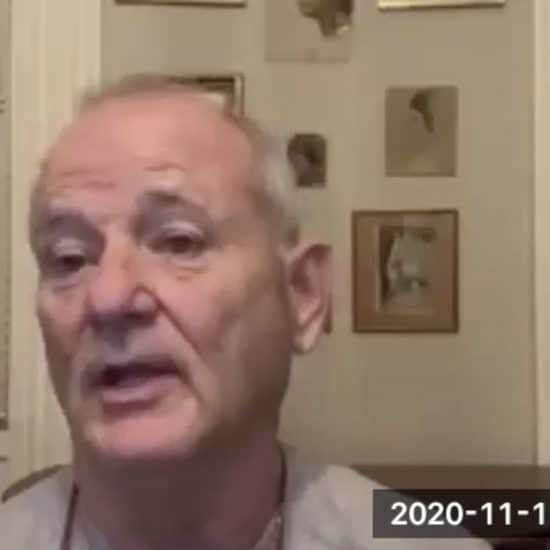 The Spirit in Creation
The Spirit in Creation
Formations: June 4, 2017
Scripture: Genesis 1:1-5; 2:4b-9; Job 34:12-15
 Michael K OlmstedIf we are to have a meaningful discussion about origins, the world and ours, we are confronted by endless confusion unless we admit to a reality beyond creation as a random spontaneous event. At a time and place we cannot identify, perhaps on a green hillside overlooking the Sea of Galilee, a nomadic shepherd/gatherer contemplated the sun setting in the west. He knew about birth and death, the cycle of seasons, trees bearing fruit and losing their leaves, and the unexpected changes of weather. But there was something different about that shepherd, for he did not see mystical spirits in rocks and trees, he did not fear unpredictable spirits that threatened and needed to be bought off to produce good fortune. Before language could be recorded in some written form, that unknown poet composed an epic oral poem that saw God as the “eternal origin” of the physical world, the Creator who spoke reality into existence. What is so amazing about that “in the beginning” poem is its symmetry, order and beauty, repeated for generations and finally written down as the first of many books that became the Hebrew Scriptures and then the Christian Scriptures. It staggers the imagination that something so primitive contains the key ideas of how our world was formed, and that its portrayal of God exceeds our selfishness and pride, introduces the Holy Spirit, and points to life beyond the physical.
Michael K OlmstedIf we are to have a meaningful discussion about origins, the world and ours, we are confronted by endless confusion unless we admit to a reality beyond creation as a random spontaneous event. At a time and place we cannot identify, perhaps on a green hillside overlooking the Sea of Galilee, a nomadic shepherd/gatherer contemplated the sun setting in the west. He knew about birth and death, the cycle of seasons, trees bearing fruit and losing their leaves, and the unexpected changes of weather. But there was something different about that shepherd, for he did not see mystical spirits in rocks and trees, he did not fear unpredictable spirits that threatened and needed to be bought off to produce good fortune. Before language could be recorded in some written form, that unknown poet composed an epic oral poem that saw God as the “eternal origin” of the physical world, the Creator who spoke reality into existence. What is so amazing about that “in the beginning” poem is its symmetry, order and beauty, repeated for generations and finally written down as the first of many books that became the Hebrew Scriptures and then the Christian Scriptures. It staggers the imagination that something so primitive contains the key ideas of how our world was formed, and that its portrayal of God exceeds our selfishness and pride, introduces the Holy Spirit, and points to life beyond the physical.
In the second verse of that grand outpouring of words we discover the Spirit of God: “The earth was without shape or form, it was dark over the deep sea, and God’s wind swept over the waters” (Genesis 1:2). “Wind” is the Hebrew ruach, which is variously translated “wind,” “breath” and “spirit” in different passages in the Bible. When Jesus talked about our need for a spiritual birth to the Pharisee Nicodemus, he explained, “The wind blows where it wishes and you hear the sound of it, but you do not know where it comes from and where it is going, so is everyone who is born of the Spirit” (John 3:8). The Spirit who was key in the creation of the world is the same Spirit who transforms our imperfect lives into a new creation for God.
We read the Old Testament through our New Testament understanding and our concept of God as “three in one” (trinity). Jesus came, not as another prophet, but as the Son of God, One with the Father, bridging the gap between us and God (Ephesians 4:4-6). The idea that God’s “breath” or “wind” hovers over the formless deep (Gen. 1:2) shows how completely God, in all his fullness, was involved in creation. The total biblical narrative shows God involved in the plan of redemption from the first day until the second coming of Christ. Genesis 2:4b-9 describes God “blew[ing] life’s breath into” Adam’s nostrils. The Hebrew yaphach is used in this verse, which means to “puff” or “breath” life into Adam. This is further evidence that God is the source of life. Ultimately in Christ, God breathes into us the everlasting life through the action of God’s Spirit as Jesus told Nicodemus.
Additional insight is found in Job 34:12-15, a passage we should read more carefully. We know about Job’s suffering and sharp exchanges with God, but Job’s friend Elihu refers to our absolute need for God’s “breath” or “spirit” in our world. Again, that word ruach appears as Elihu warns: “If (God) were to decide … to gather his spirit and breath back to himself … all flesh would die together, and humans would return to dust” (vv. 14-15).
There are many stories during the cycle of judges in Israel’s history when the people abandoned God, suffered terribly, cried out for God and a judge was raised up with the Spirit of the Lord to deliver them. But the people fell away again and the cycle repeated. Although God’s Spirit did not dwell within the people for a lifetime the Holy Spirit did continue to work and bless. Only after the cross and resurrection, when Christ had defeated the ghastly power of sin and death, did the Holy Spirit come fully upon God’s people. We are dependent on God for life and the Holy Spirit has been involved with salvation from the first day of creation.
We often think of ourselves as privileged because our body is a “temple of the Holy Spirit who is in you” (1 Corinthians 6:19). If we are going to hold on to that idea we must also take seriously the “divine possibilities” that must follow.
Are you open each day to God’s Spirit guiding you in your relationships and choices? Yes, we are free in Christ, but freedom requires responsibility and grace in living. Many times when I viewed someone as difficult or immoral, a Christian friend reminded me that that person needs the love of Christ. Is the breath of God flowing through your life in your attitudes, words, and actions? The Spirit filled life is seen in our compassion, generosity, and consistency.
There is so much more to the creation narrative in Genesis than a seven day, twenty-four hour blueprint. There is God, who – knowing how terrible it could all turn out – created this world. God created something good, and, in his power, wisdom, love and grace breathed life into the world and humanity. God continues, through his Spirit, to breathe life into us that we may show the world God’s love and God’s way.
Retired after 46 years in pastoral ministry, Michael K. Olmsted enjoys family, supply preaching and interim work, literature, history, the arts and antiques.
Formations is a curriculum series from Smyth & Helwys Publishing, Inc. through NextSunday Resources.
The PDF download requires the free Acrobat Reader program. It can be downloaded and installed at https://get.adobe.com/reader.





